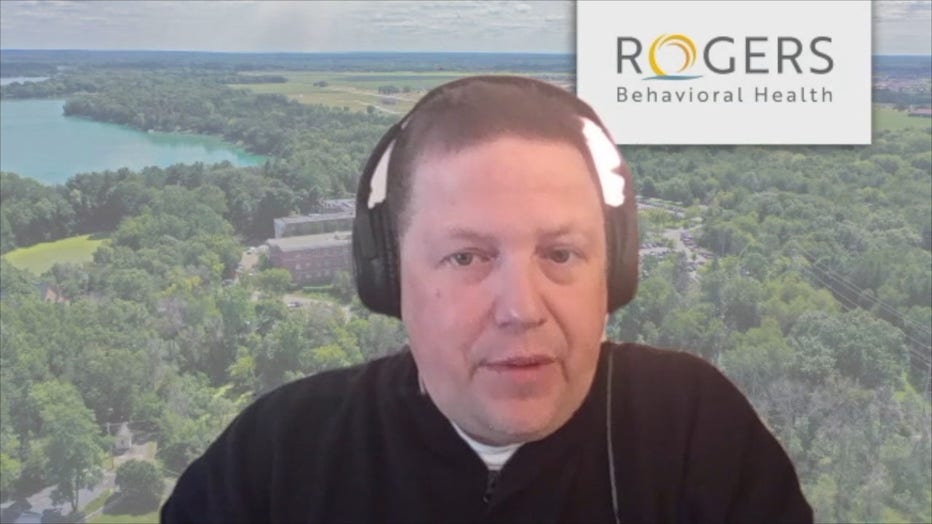COVID and mental health: Specialist shares how you can help others
MILWAUKEE - Mental health specialists say the pandemic brought on more symptoms of depression and anxiety in people, but especially in people who became seriously ill with the virus.
"Mental health problems are very common," said Dr. Jerry Halverson, Chief Medical Officer at Rogers Behavioral Health.
Dr. Jerry Halverson with Rogers Behavior Health helps people work through their mental health problems.
"We know that depression and anxiety are treatable, we know that our treatments work for a vast majority of people," said Dr. Halverson.

Dr. Jerry Halverson
He is now treating more people who had COVID-19. Dr. Halverson shares a recent study by Lancet Psychiatrists that followed 240,000 people – some having a serious case of COVID-19 and others another respiratory illness.
"It found that people who had COVID-19 are 30% likely to have what they termed a neurological or psychiatric problem within six months and the most common were depression or anxiety," said Dr. Halverson.
Dr. Halverson says some symptoms of depression can range from not sleeping well, sleeping too much, lack of energy, and change in everyday behaviors.

"Over the course of the pandemic we’ve seen an intensity of mental health issues, whether it’s depression, anxiety, or addiction. The numbers and the severity we’ve been seeing as a mental health system are unprecedented," said Dr. Halverson.
People who have a history of anxiety, depression, or addiction are at particularly higher risk Dr. Halverson says.
"If you’re suspicious your loved one or friend is experiencing depression I think the important thing is to start talking to them, asking them how they’re feeling, and how you can help them feel understood," said Dr. Halverson.
FREE DOWNLOAD: Get breaking news alerts in the FOX6 News app for iOS or Android
Before if affects all aspects of life…
"Mental illness does not only affect the person dealing with the mental illness but the family systems no less so," said Dr. Halverson. "It’s always easier to treat people earlier on in the course rather than later in the course."
May is Mental Health Awareness Month. If you or a loved one are in need of mental health resources, you can find them on the Roger Behavior Health website.

Walgreens COVID shots for teens
Plenty of Pfizer doses are available at clinics, pharmacies and pediatrician's offices.


